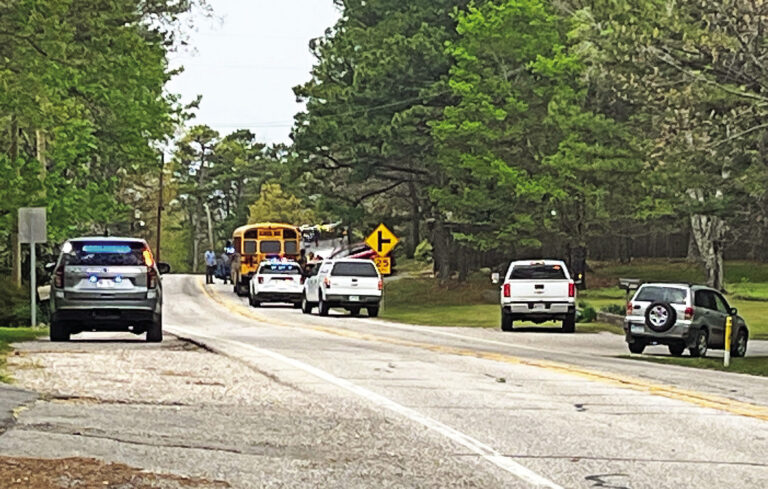Scout Clean Energy, whose plans to construct a “wind farm” in rural Carroll County near Green Forest have sparked controversy among local residents for several months, has signed a “Facilities Construction Agreement” that opponents of the project say could lead to land being seized through eminent domain.
Scout officials acknowledge that the 55-page agreement between Scout, Entergy Arkansas and Midcontinent Independent System Operator Inc. does include a reference to eminent domain, but say that Scout has acquired the necessary land rights through voluntary agreements with property owners.
“All agreements that Scout Clean Energy has executed are voluntary. Scout does not have the right of Eminent Domain in Arkansas,” said Dave Iadorola, Scout’s project manager for the Nimbus project. “We have entered into a Facilities Construction Agreement with Entergy as a part of the Generator Interconnection Agreement (GIA) that allows Entergy to build facilities required for the interconnection of the project into the grid. These facilities are constructed by Entergy with the installation paid for by Scout.
“Entergy is granted the right of Eminent Domain through the Arkansas PSC. Scout has acquired voluntary land rights up to its point of interconnection, and Entergy will construct the necessary network upgrades necessary to interconnect the Nimbus Wind Farm.”
In simple terms, eminent domain allows the government or in some cases other entities to take ownership of land for public use, with compensation of the previous landowner.
Scout, based in Boulder, Colo., plans for the project to expand over approximately 9,000 acres — about 14 square miles — in Carroll County, much of it along County Road 905 southeast of Green Forest. Scout says the project could generate up to 180 megawatts of electricity at peak demand — enough to power almost 30,000 homes. The company says it has signed lease agreements with more than 50 landowners to place wind turbines on their property. The company estimates that the 30year project will generate more than $14 million in lease payments and $25 million in tax revenue for the county.
The planned project has drawn vigorous opposition from opponents who say it will be harmful to wildlife, have adverse health effects and pose a potential safety risk for humans and potentially cause significant damage to county roads, along with disturbing the natural beauty of the area. Opponents of the project also say Scout’s ownership can be traced to Chinese interests.
The Facilities Construction Agreement, dated Nov. 16, calls for Entergy to perform upgrades to substations at Scout’s expense. Entergy has eminent domain authority and the agreement stipulates that Entergy will procure “any rights of use, licenses, rights of way and easements” necessary to complete the upgrades if the project requires the use of land on property not currently owned by Scout or Entergy. The agreement says Entergy will “use efforts … including use of its eminent domain authority,” in order to procure the necessary property or access rights.
Julie Morton, an opponent of the Nimbus project who said she worked in the energy sector for 42 years including working on multiple, large electric transmission line projects, pointed to the eminent domain reference in the agreement.
“Entergy agrees that if additional, private lands are needed for these upgrades, and agreements cannot be reached with landowners, Entergy will exercise their right of eminent domain,” Morton said in a Dec. 7 email. “So, Entergy will be condemning lands for the benefit of Scout. The general public will receive no benefit from the upgrades, however, they will be subject to having their lands condemned by Entergy.”
Morton also noted a lack of oversight of the Nimbus project, thus far, by the Arkansas Public Service Commission.
“Scout has maintained that they are not subject to any oversight on this project by the Arkansas Public Service Commission because they will be selling no electricity in Arkansas,” Morton said in an email. “In other words, the local population will receive no benefit, but will bear the entire burden of the environmental damage caused by the project, and will be subject to condemnation proceedings. Because Entergy is a public utility, in my experience, any system upgrades or new transmission lines will be subject to oversight by the APSC. However, Scout has, thus far, avoided all oversight at the state level. In Arkansas, all other forms of power generation are regulated either by the APSC or by the Arkansas Oil and Gas Commission. Why then should Scout get a pass on those requirements?”
In her Dec. 7 email, Morton said that “because Scout has not disclosed their plans for additional transmission lines to serve their project, it is not known which, if any tracts will end up being condemned. But, it is a powerful tool that Scout has managed to put in their back pocket if needed.”
In a subsequent email, dated Wednesday, Dec. 13, Morton said she had “ since learned where the proposed, additional transmission lines are located. … It is still true that which, if any tracts might be condemned is not known. There may not be any condemnations.”

